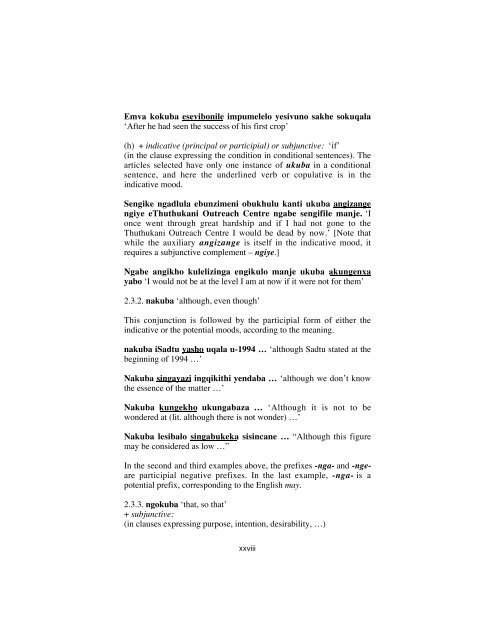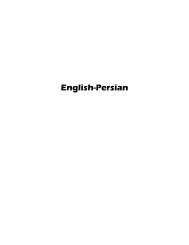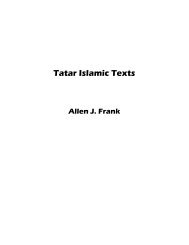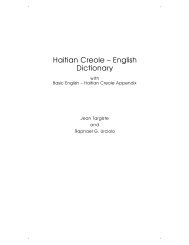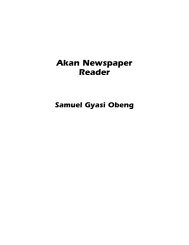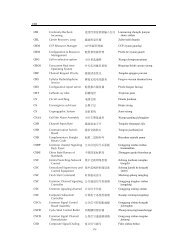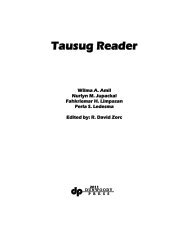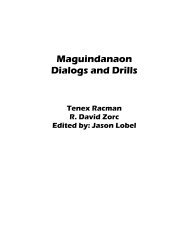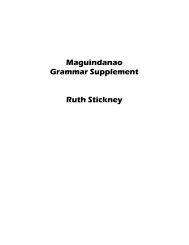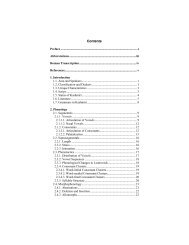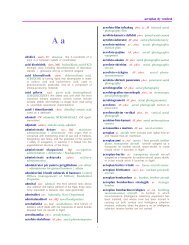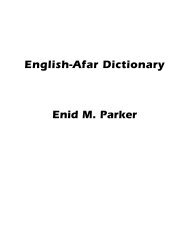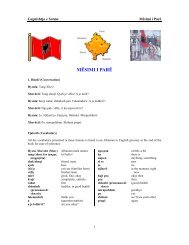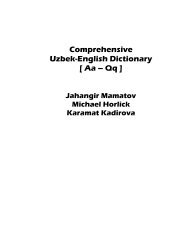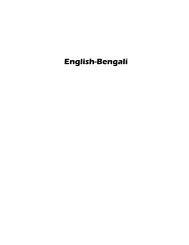Zulu Newspaper Reader - Dunwoody Press
Zulu Newspaper Reader - Dunwoody Press
Zulu Newspaper Reader - Dunwoody Press
You also want an ePaper? Increase the reach of your titles
YUMPU automatically turns print PDFs into web optimized ePapers that Google loves.
Emva kokuba eseyibonile impumelelo yesivuno sakhe sokuqala<br />
‘After he had seen the success of his first crop’<br />
(h) + indicative (principal or participial) or subjunctive: ‘if’<br />
(in the clause expressing the condition in conditional sentences). The<br />
articles selected have only one instance of ukuba in a conditional<br />
sentence, and here the underlined verb or copulative is in the<br />
indicative mood.<br />
Sengike ngadlula ebunzimeni obukhulu kanti ukuba angizange<br />
ngiye eThuthukani Outreach Centre ngabe sengifile manje. ‘I<br />
once went through great hardship and if I had not gone to the<br />
Thuthukani Outreach Centre I would be dead by now.’ [Note that<br />
while the auxiliary angizange is itself in the indicative mood, it<br />
requires a subjunctive complement – ngiye.]<br />
Ngabe angikho kulelizinga engikulo manje ukuba akungenxa<br />
yabo ‘I would not be at the level I am at now if it were not for them’<br />
2.3.2. nakuba ‘although, even though’<br />
This conjunction is followed by the participial form of either the<br />
indicative or the potential moods, according to the meaning.<br />
nakuba iSadtu yasho uqala u-1994 … ‘although Sadtu stated at the<br />
beginning of 1994 …’<br />
Nakuba singayazi ingqikithi yendaba … ‘although we don’t know<br />
the essence of the matter …’<br />
Nakuba kungekho ukungabaza … ‘Although it is not to be<br />
wondered at (lit. although there is not wonder) …’<br />
Nakuba lesibalo singabukeka sisincane … “Although this figure<br />
may be considered as low …”<br />
In the second and third examples above, the prefixes -nga- and -ngeare<br />
participial negative prefixes. In the last example, -nga- is a<br />
potential prefix, corresponding to the English may.<br />
2.3.3. ngokuba ‘that, so that’<br />
+ subjunctive:<br />
(in clauses expressing purpose, intention, desirability, …)<br />
xxviii


